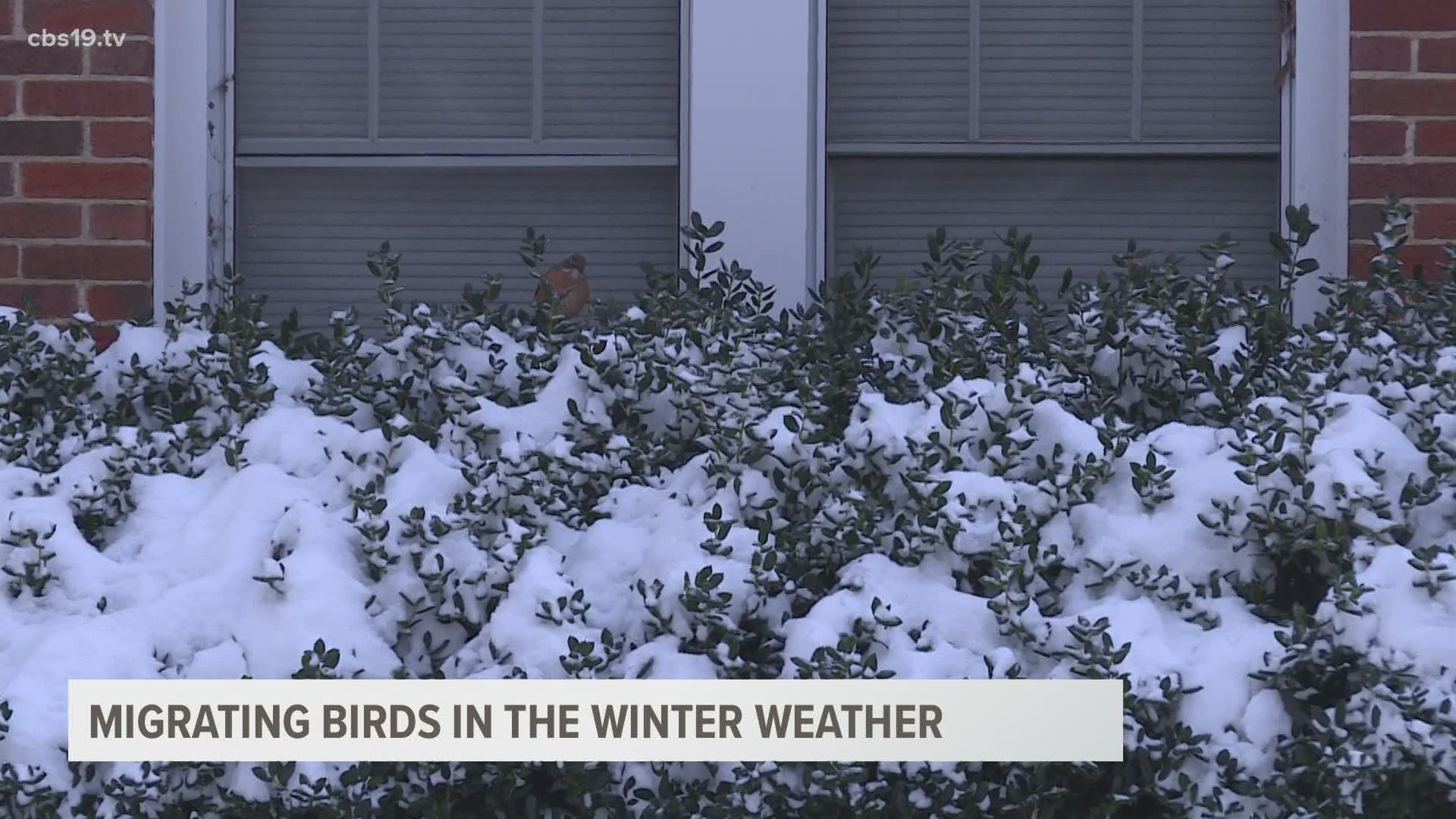TYLER, Texas — The record February snowfall in East Texas and this past week’s winter storm have left an impact on the area’s wildlife.
“One of the most important things to note is that it could be some time before we know the full impact of this weather on our state’s natural resources, and our staff are continuing to work on this,” said Texas Parks and Wildlife Department spokeswoman Megan Radke.
The department’s staff continue to receive reports of dead birds, including waterfowl. Insectivorous, or insect-eating, and nectivorous, or nectar-eating birds likely suffered greater mortality than other fowl. That’s because of the lack of and possible death of insects and nectar-bearing plants.
“The prolonged period of subfreezing temperatures, coupled with a limited availability of food resources due to snow and ice has had some impact on wildlife resources,” the Texas Parks and Wildlife Department said. “However, given the secretive nature of most wildlife species, the full extent of the impact cannot yet be determined. Some of the wildlife species impacted by the storm include exotic, non-native ungulates like axis deer, blackbuck and nilgai antelope that originate in temperate climates, various bat species and multiple bird species.”
Read the rest of the story with our news partners, the Tyler Morning Telegraph.

